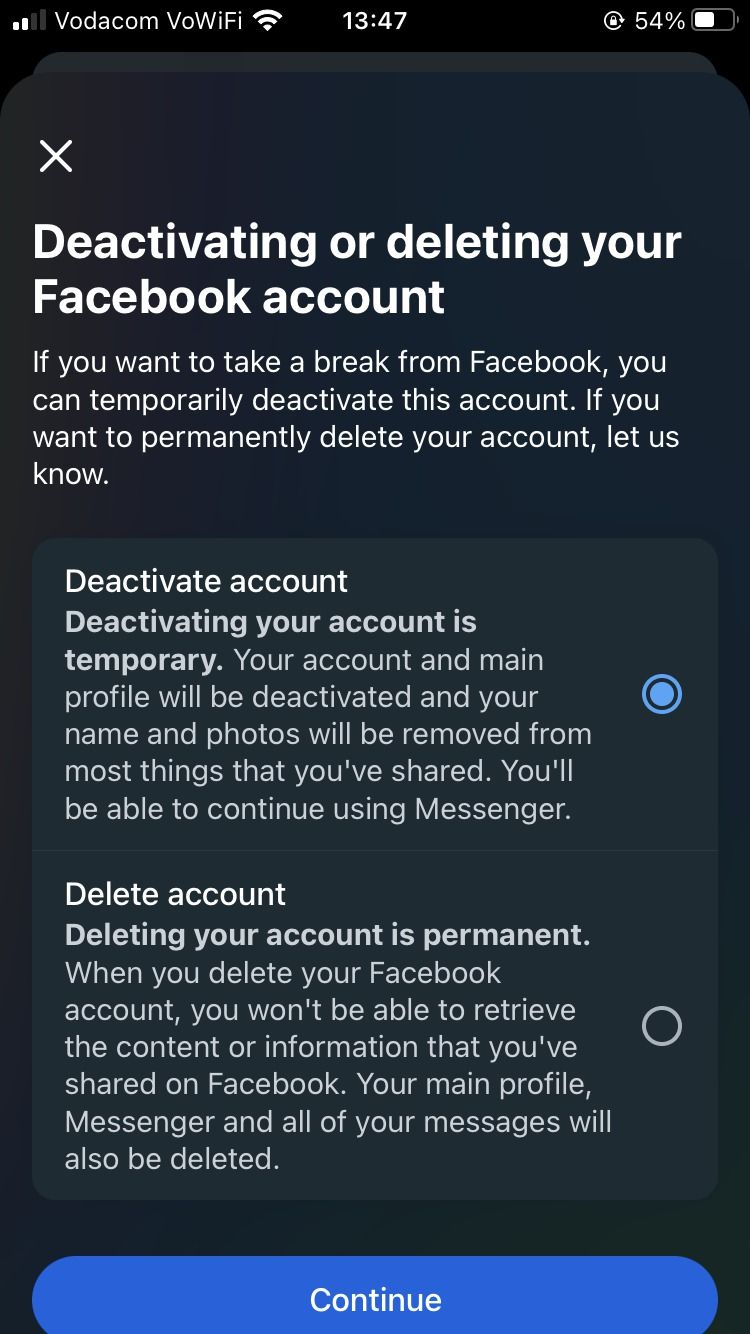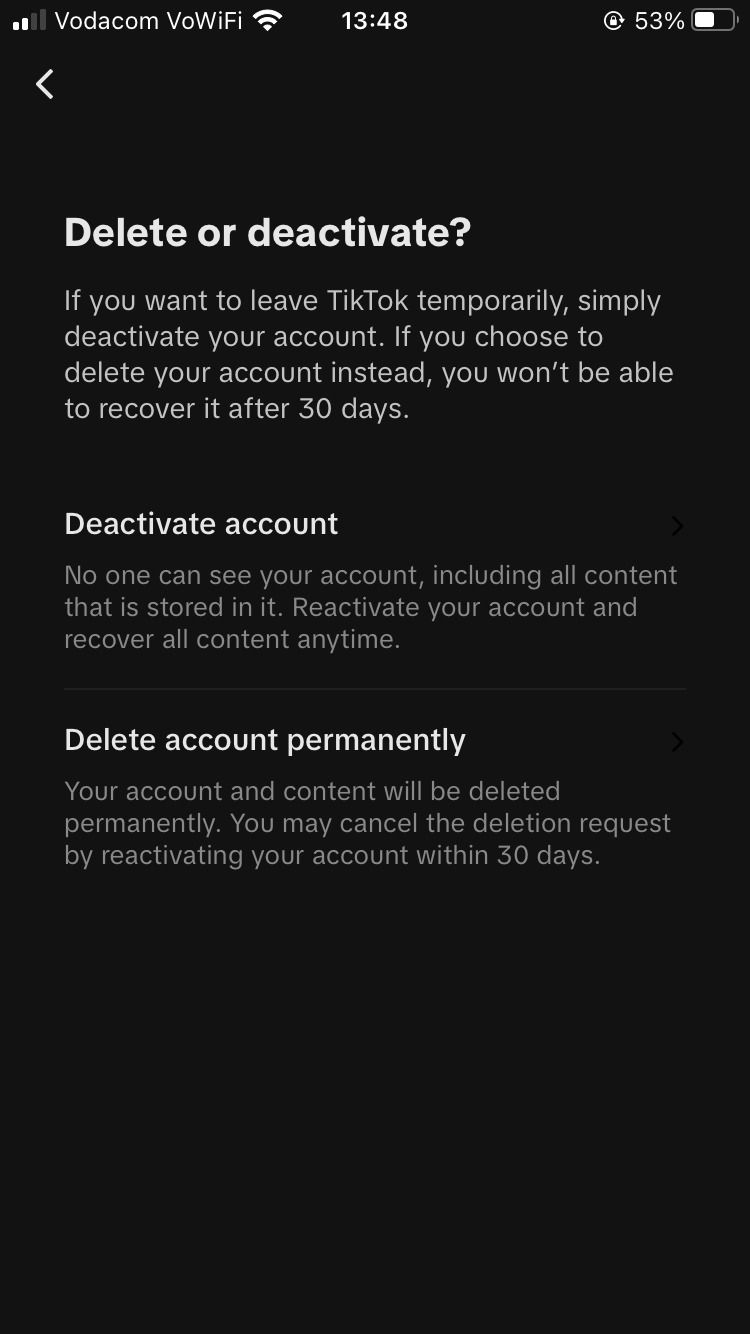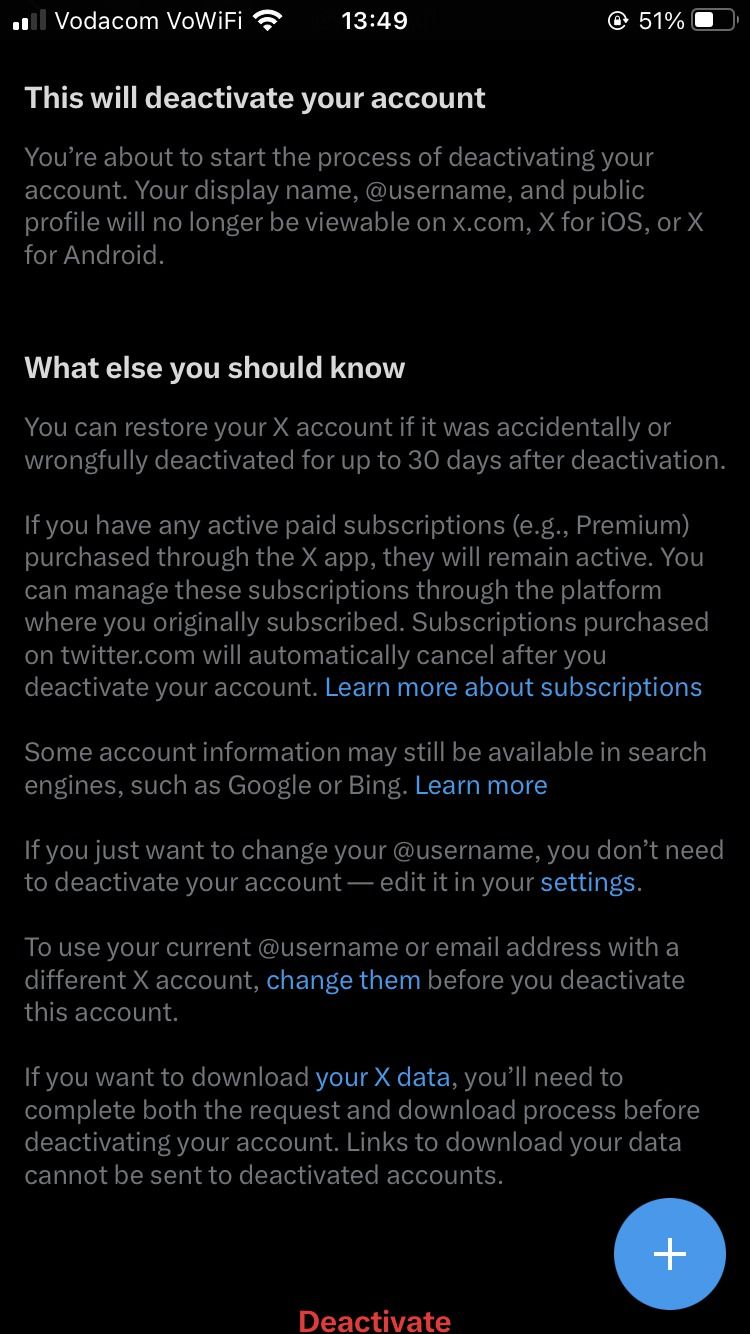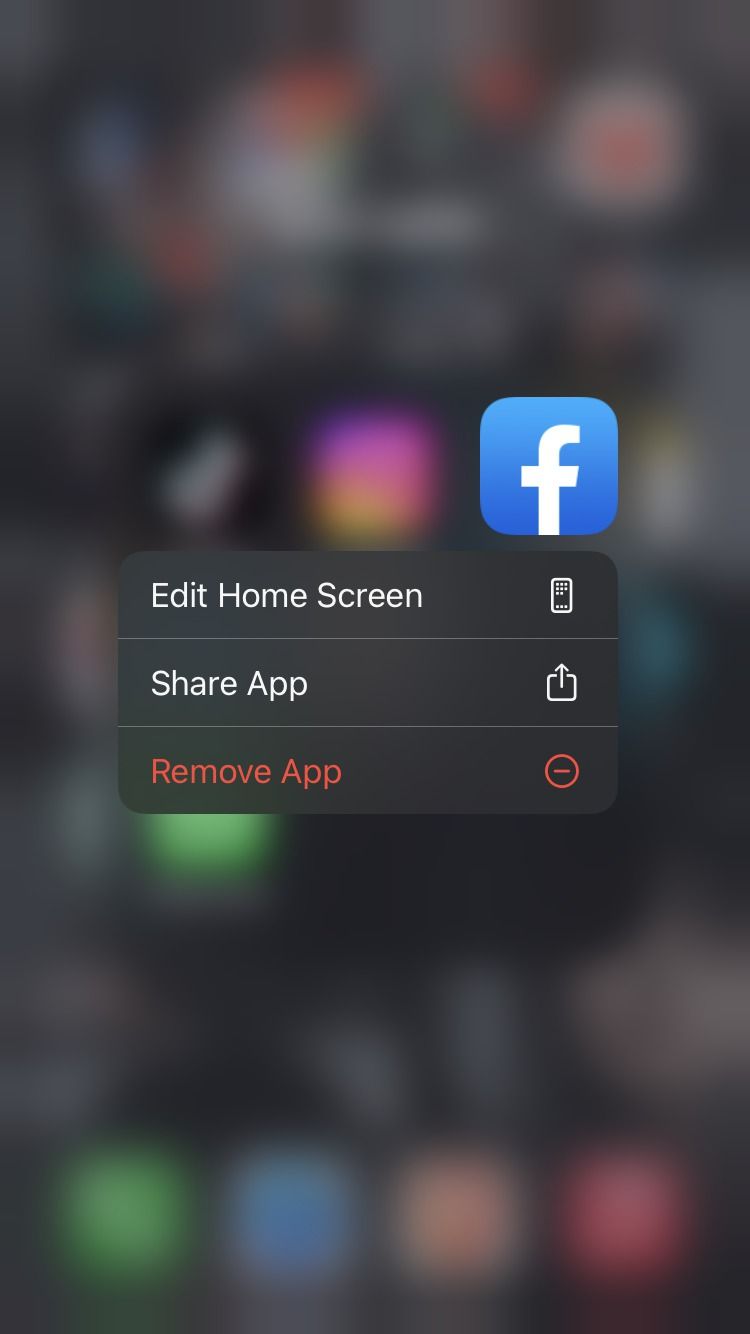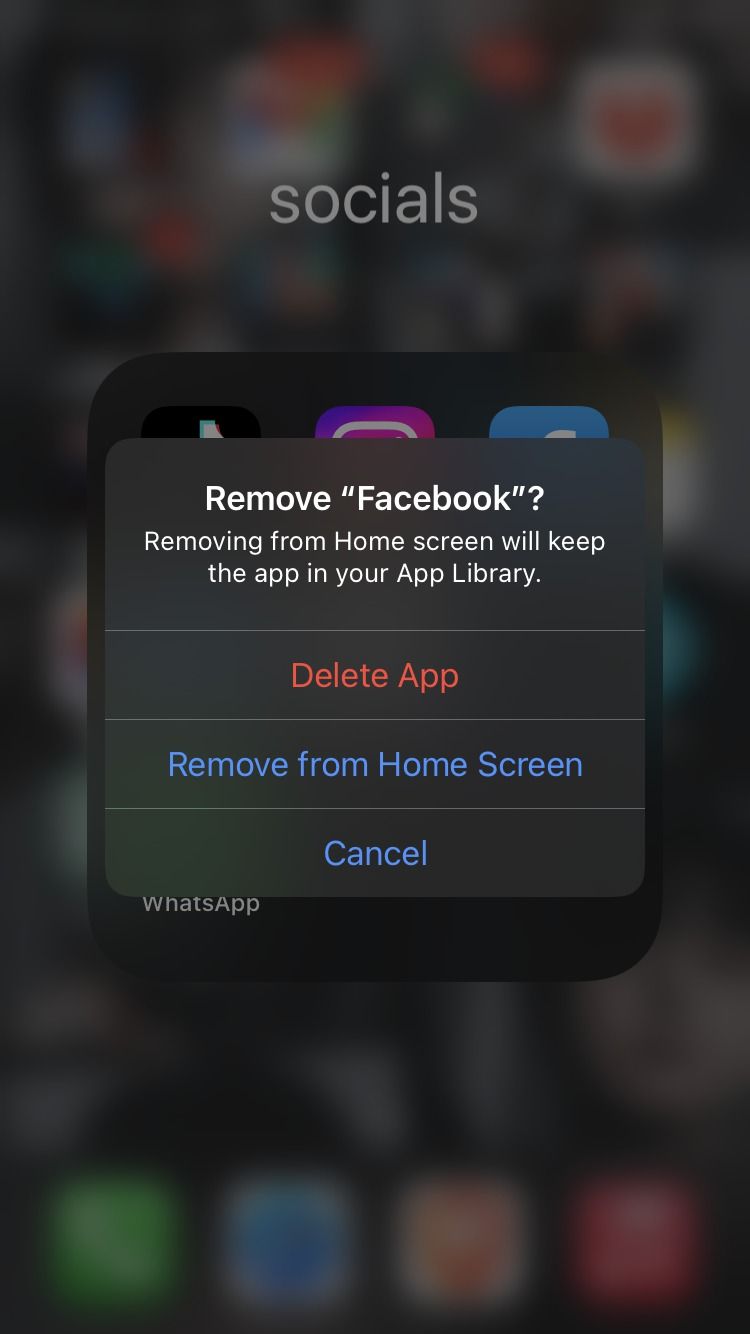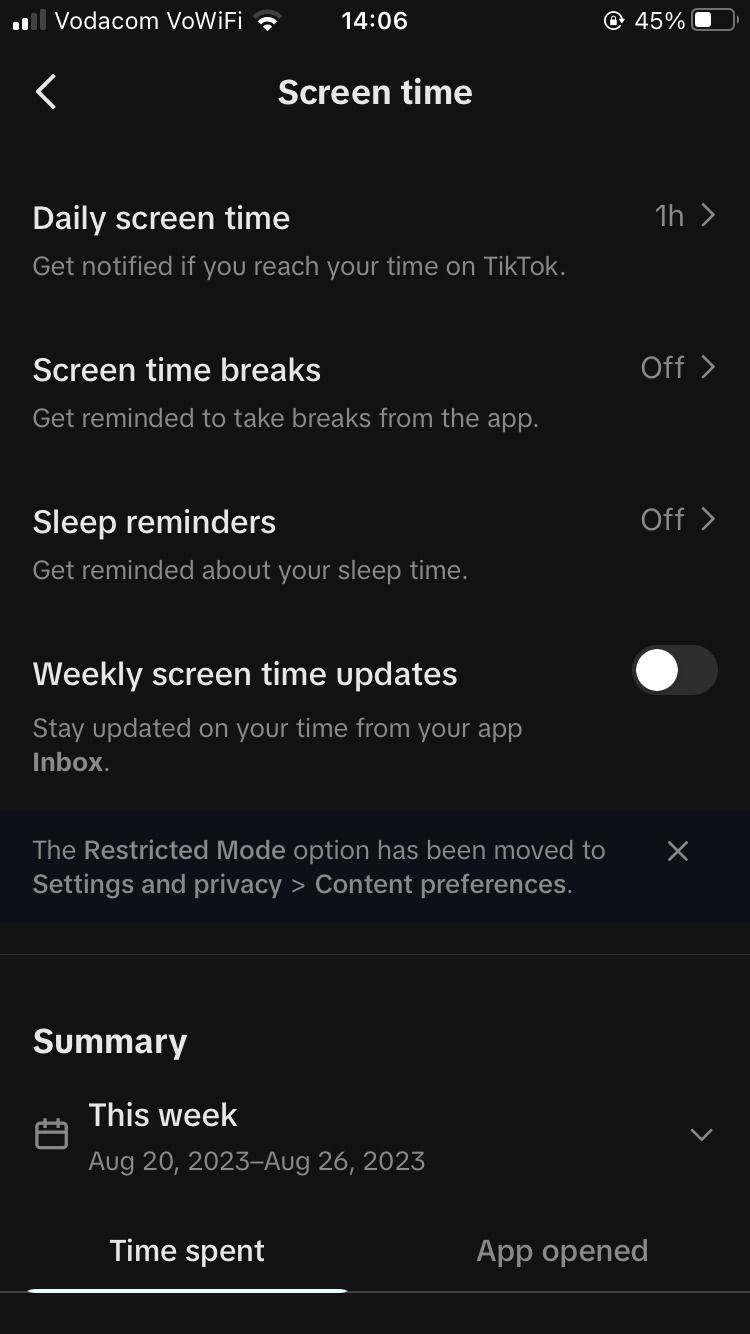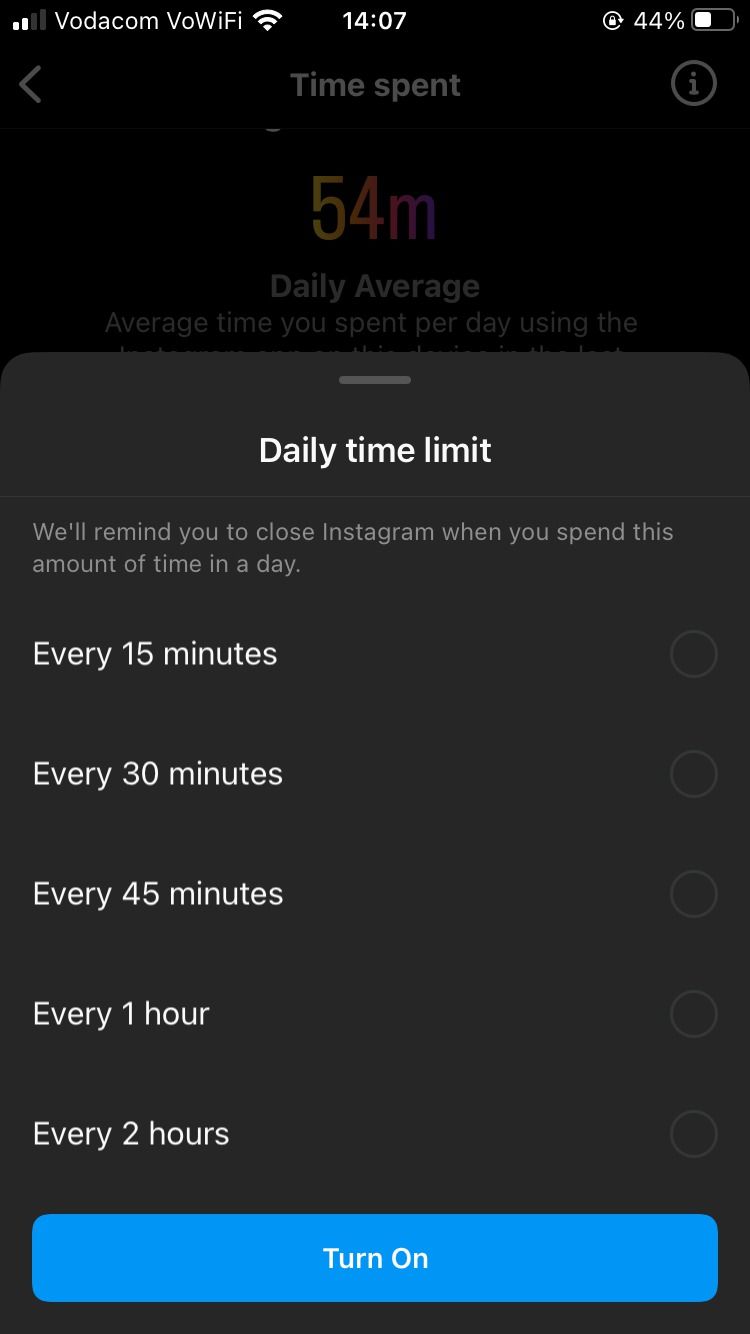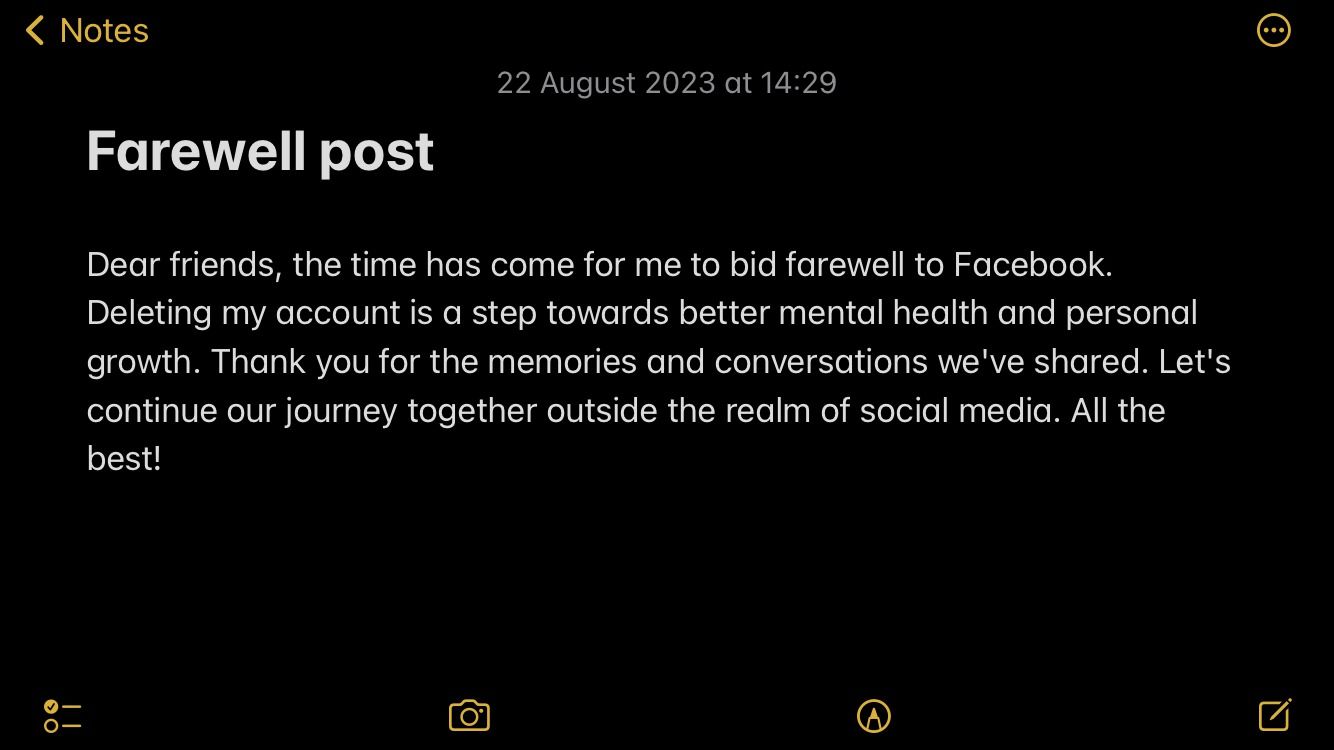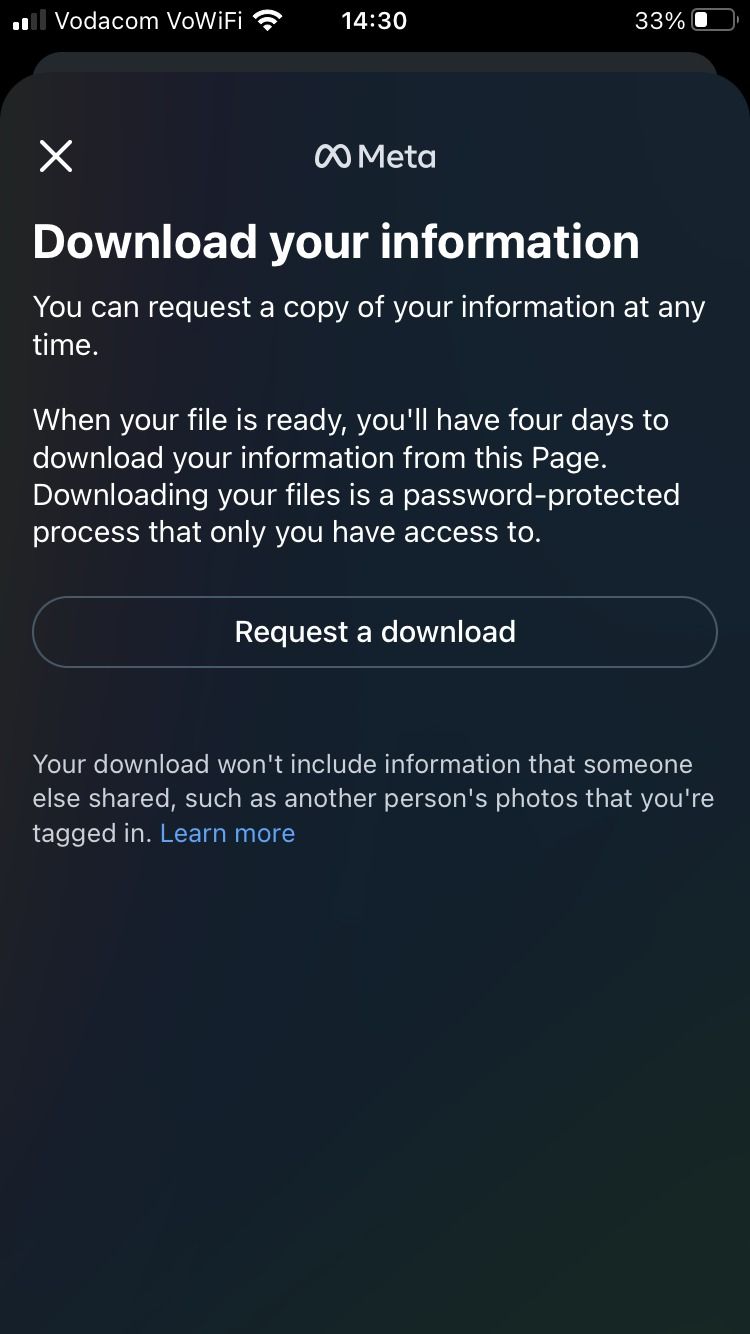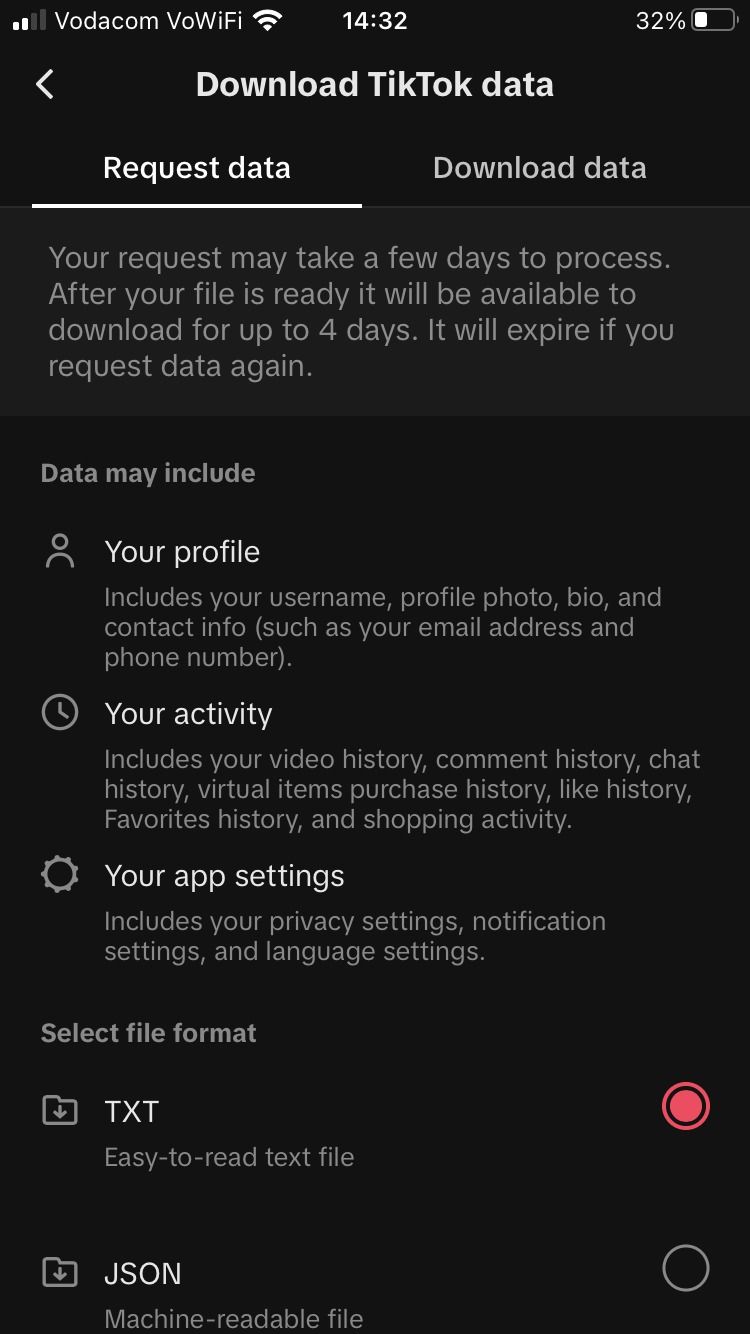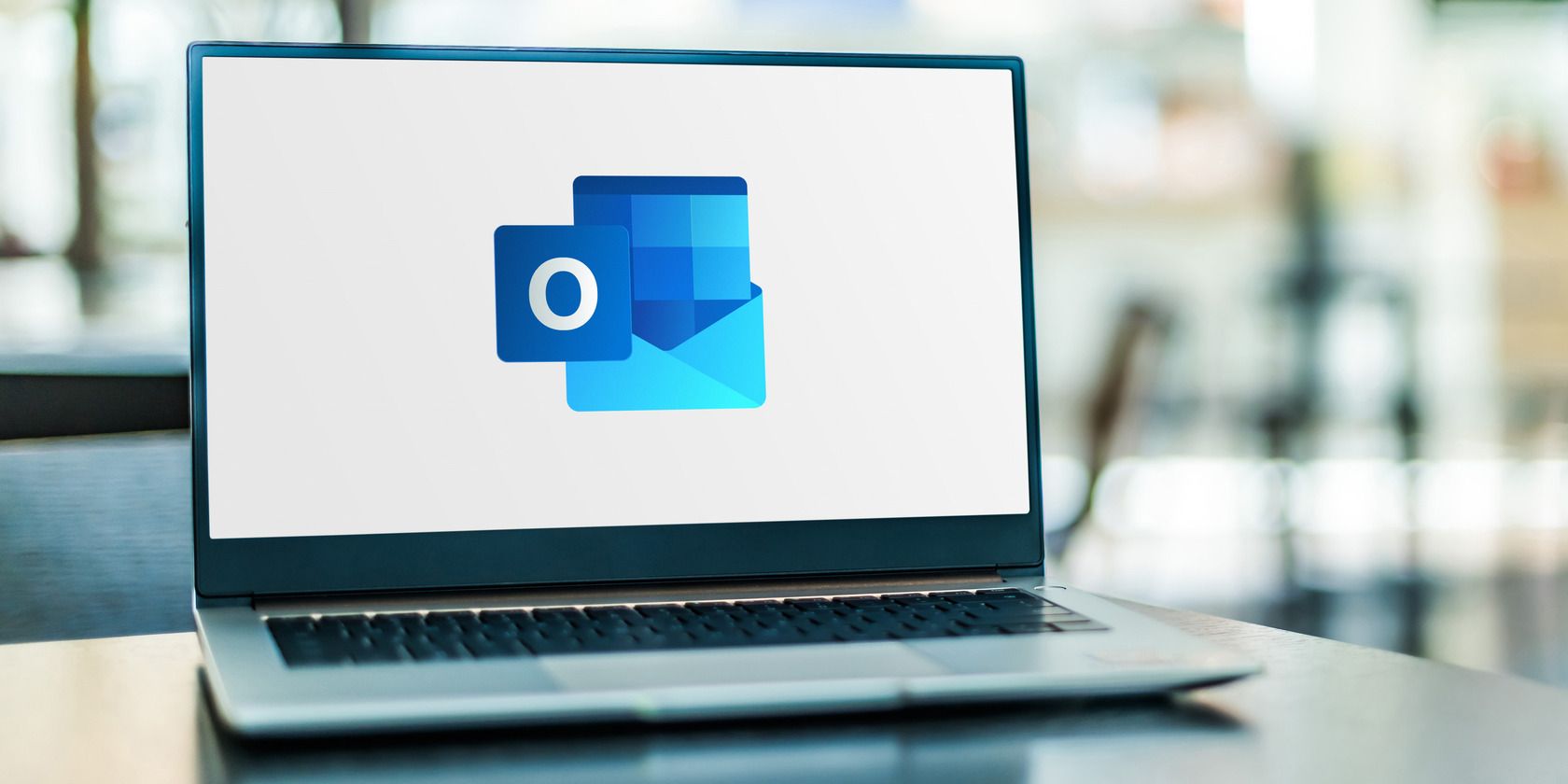
Pre-Deletion Self-Assessment: Are You Ready for an Unplugged Life?

Pre-Deletion Self-Assessment: Are You Ready for an Unplugged Life?
For many of us, social media is an integral part of our day-to-day lives. Instagram is our visual diary, TikTok keeps us entertained, and Facebook is that old friend we enjoy catching up with from time to time. These platforms keep us plugged in, yet they can make us feel so disconnected at the same time.
If you’re reading this, chances are you’re considering unplugging from the constant pings that keep lighting up your phone. It might seem like the best decision right now, but deleting a social media account takes some preparation. It can even bear negative consequences, which you’ll need to mull over before taking the plunge.
Here’s what you need to consider before deleting your social media accounts.
Disclaimer: This post includes affiliate links
If you click on a link and make a purchase, I may receive a commission at no extra cost to you.
1. Deactivate First
Close
Deleting a social media account is a permanent and major decision, and one that you might regret later on. So, try deactivating first.
Deactivating a social media account will give you an idea of what to expect should you delete it in the future. While deactivated, evaluate whether it brought any significant changes to your life. If you’ve reached the conclusion that you’re better off, you’re ready to permanently get rid of it. If you’re still doubtful, you can always reactivate.
Keep in mind that deactivating will be frustrating at first, kind of like withdrawal from social media. Don’t mistake this feeling for the certitude of keeping your account; we recommend staying deactivated for at least a few weeks, or even a few months, so you’ll get used to it. This way, you’ll be able to make an unclouded decision.
When deactivating, remember that some platforms will permanently delete your account after a specific time period. For example, you can only stay deactivated for 30 days on X (Twitter) before your account gets deleted.
2. Delete the App
Close
If deactivating feels too dramatic, you can always delete the app instead. This way, you’ll get the same effect of deactivation—but your account remains unchanged.
There’s also no limit as to how many times you can uninstall and reinstall an app should you keep changing your mind. Whereas with deactivation, there’s a waiting period on some platforms before you can deactivate again if you have back-and-forth contemplations.
3. Stop Doomscrolling
Close
Ask yourself why you want to delete your social media accounts. If it’s got to do with mental health or time management, then the platform might not be the problem, but rather the way you use it.
Platforms likeTikTok can be very beneficial . The problem lies in the doomscroll trap. We get slightly bored, open a social media app, and just keep scrolling for little hits of dopamine. This can be a massive time-waster and make your brain feel like it’s turning to mush.
Instead, set some rules. Stay away from the feed and go straight to the creators that you want to keep an eye on specifically. There are many otherways to keep doomscrolling under check —TikTok has a Screen Time setting to help manage your time spent on the app, and Instagram has the Time Spent setting.
Once you’ve developed a healthier relationship with social media, you might not feel the need to delete your accounts anymore.
4. Consider Your Career
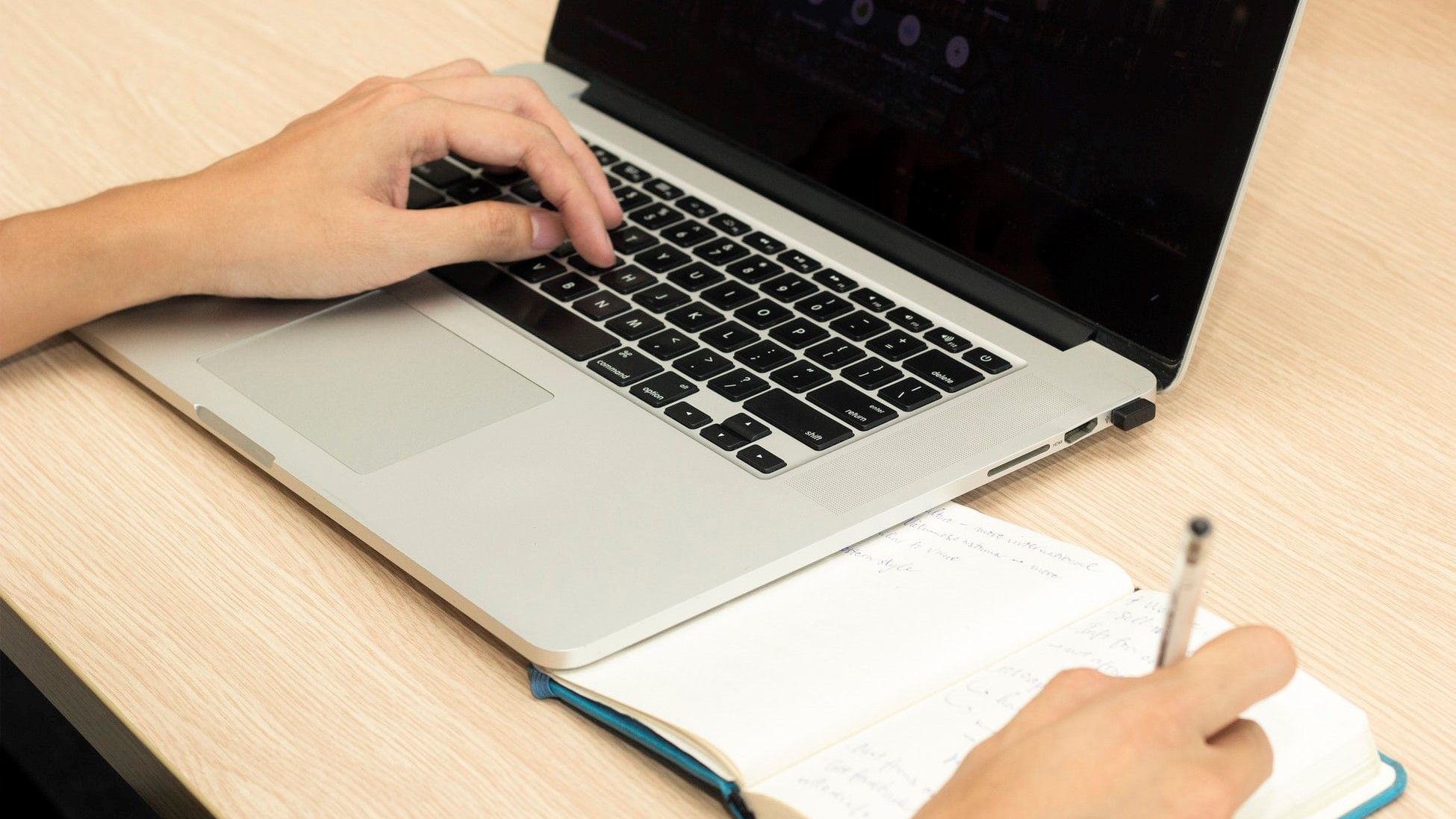
Even if deleting your social media accounts is a good decision for your personal life, consider whether it’s a smart move for your professional life.
Lacking an online presence might affect your chances of being considered for a new job. It could be interpreted as deficient networking skills or being out of touch.
Social media can also be a major networking tool. LinkedIn is probably the first to come to mind, but don’t discount the likes of Instagram or TikTok, especially if you have a bit of a following. A brand might reach out with a good opportunity.
5. Take Accountability

For a lot of people, deleting their social media accounts is a way of bidding goodbye to a time when they were problematic. We’re all constantly learning what is and isn’t acceptable, so it’s only natural to want to part with your old self.
Nothing stays entirely hidden, however. Once you’ve posted something online, it can remain there forever. People could have taken screenshots and uploaded them somewhere else, even years after you took down the post or deleted your account.
Our advice is to own up to what you’ve said instead by admitting you were wrong, apologizing, and demonstrating that you’ve learned and improved. If people are aware of your problematic posts, and you delete your account upon getting called out, it will only give the impression that you have no intention of truly taking accountability.
6. Make a Final Post
If you’re still dead set on deleting your accounts, compose a final post to inform your mutuals that you’ll be leaving. You can use the same draft on all your social media accounts, depending on how many characters are allowed per post.
Posting this will ensure that no one worries over your sudden disappearance, and it will also give you a sense of closure. However, only post once you’re certain that you want to delete the account. You might feel a little embarrassed if you announce your departure only to come back a few days later.
7. Download Your Data
Close
Before deleting anything, you should download your data because there might still be something you’d like to revisit in the future.
Most social media platforms give you the option of downloading your data, which can include things like posts, profile information, chat history, and account activity, depending on the platform. Downloading your data might not include the posts that you were tagged in, so you’ll have to save those individually.
If you’re not sure how to do it, see our guides onhow to download your TikTok data ,how to download your Twitter data , andhow to download all your Instagram photos .
8. Make a Contact List
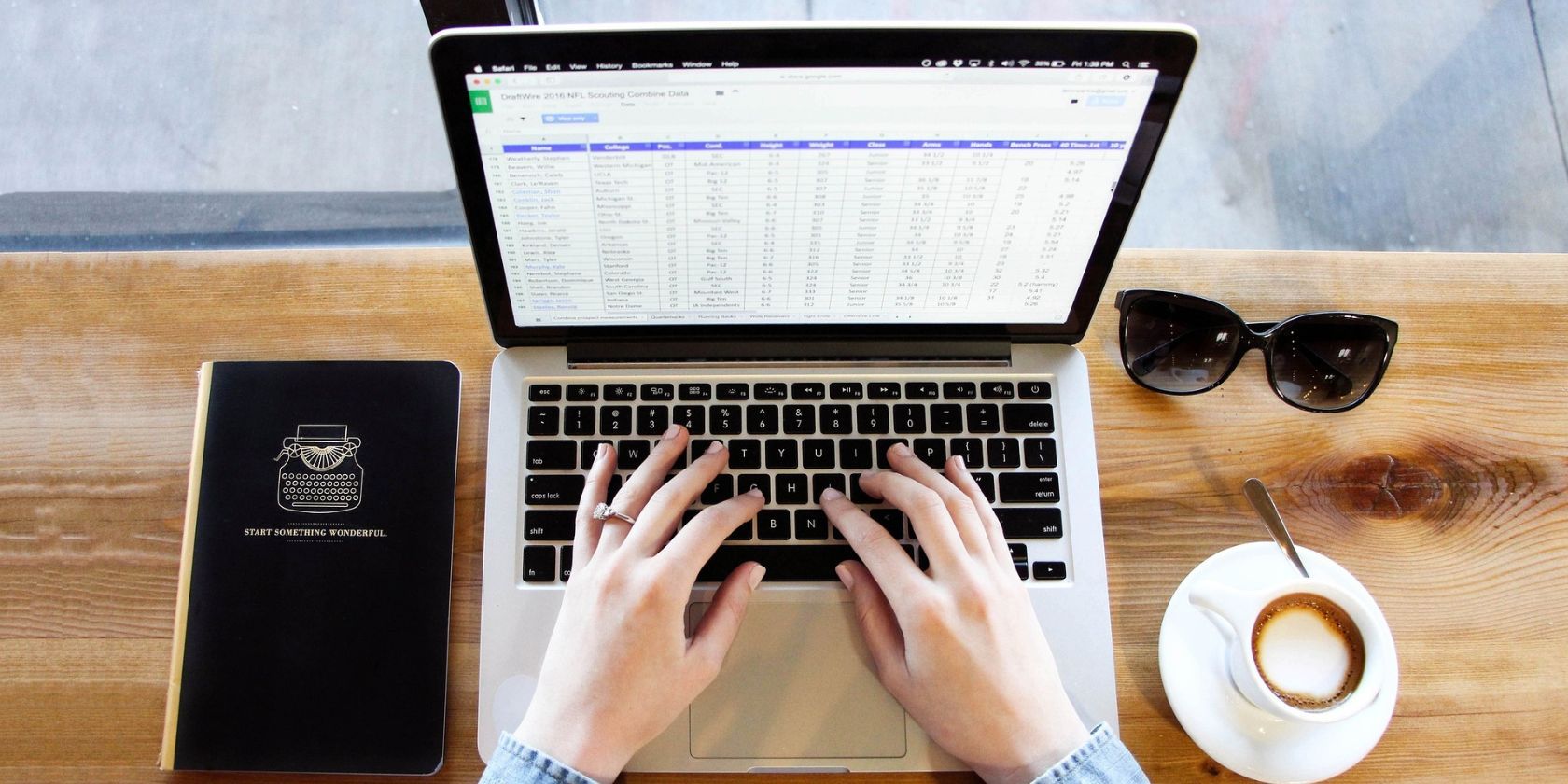
Some people are only connected through social media, and when your account is gone, you won’t have a means of contacting them anymore.
Compile a list of emails and phone numbers of the people you wish to remain in contact with. Often, you’ll find that many of these connections aren’t even worth pursuing. This is a testament to how desolate these platforms can be if you don’t use them for the right reasons, which is one of the majornegative effects of social media .
But should there be someone you’d like to keep in touch with, having their contact details ensures you won’t have to spend hours trying to find them after your account is gone.
9. Update Your Login Information on Sites That Use Social Login
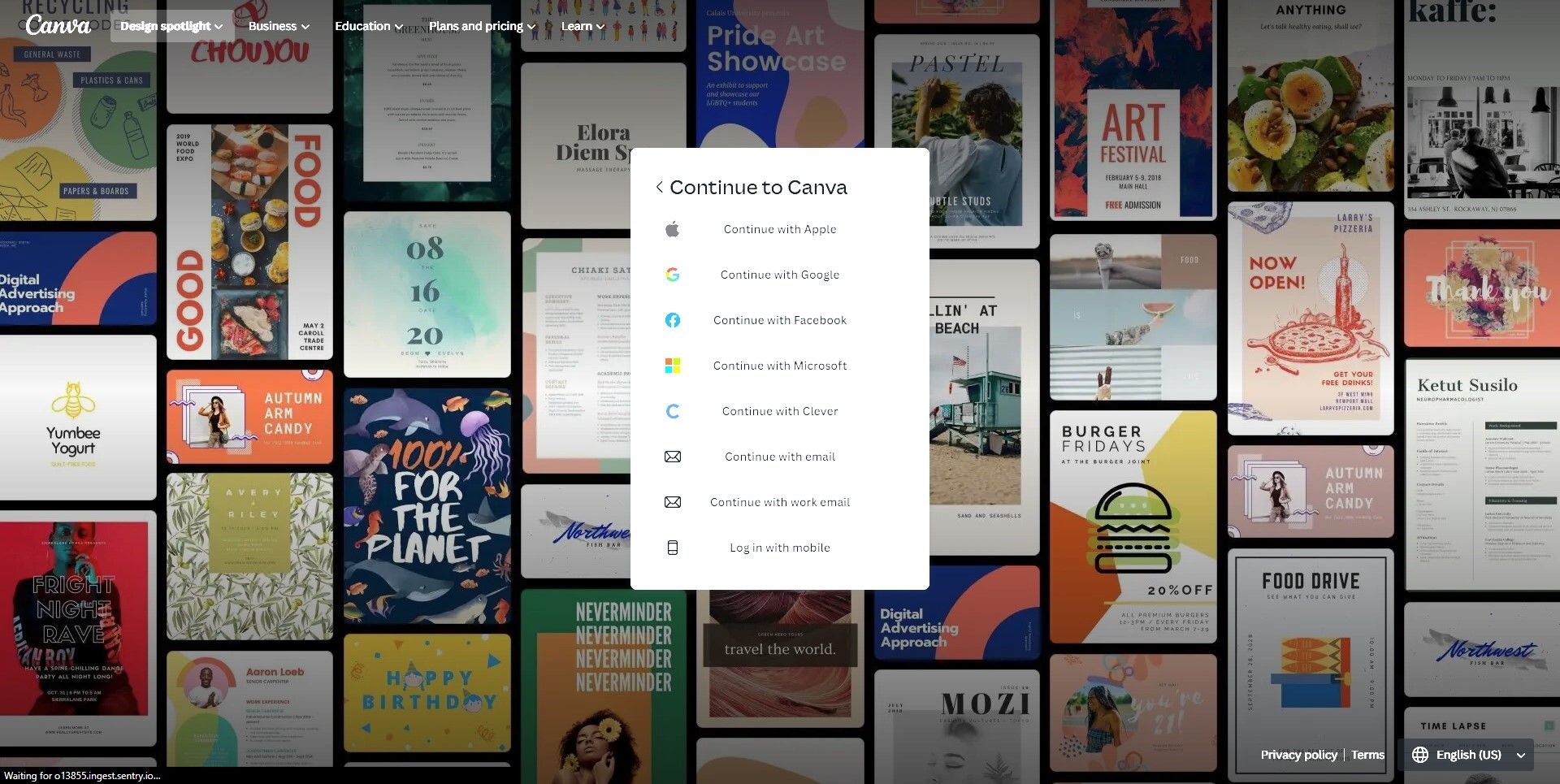
The social login feature (part of Social Sign-On Technology) allows users to log in to other apps or sites with one social media account. This makes it easier to remember your username and password. The problem with this feature is that it’s not foolproof.
If you’ve deactivated your Facebook account, for example, and use it to sign in somewhere, it will reactivate your account. You might be able to log in with the details from a deleted account, but should you need to validate your account or reset your password, you won’t be able to log in.
Take note of all the sites and apps where you used the social login feature, and change it to something else that you still have access to.
10. Prepare for FOMO
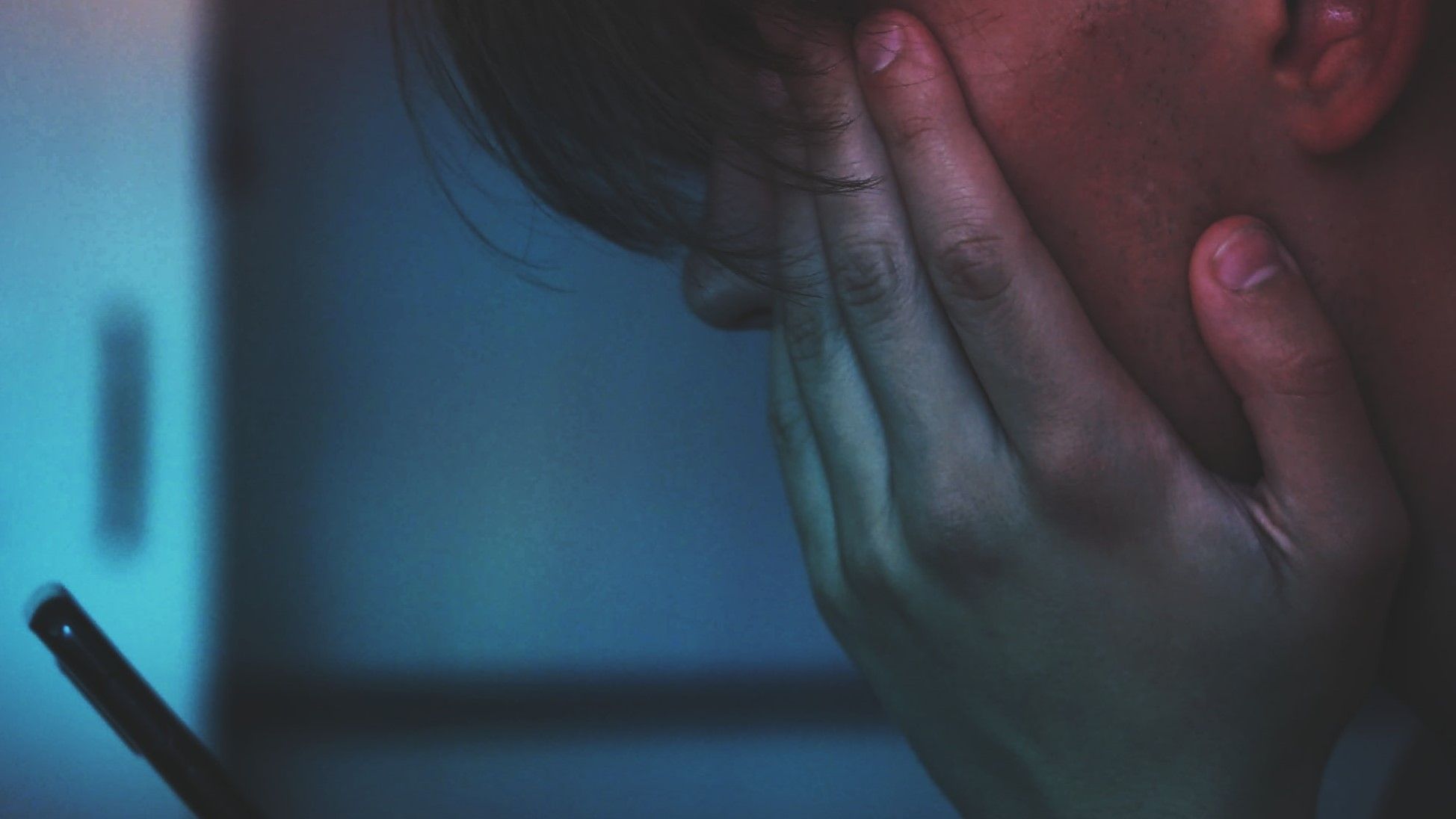
The FOMO will be real, especially if you’ve succumbed to the grips of short-form content like Reels and TikToks.
If you’re deleting your accounts with the intention of quitting social media for good, you’re going to need a distraction. Otherwise, you’ll find yourself making new accounts to get back in the loop. Try picking up a hobby that doesn’t involve the use of your phone, or focus onbuilding healthier habits in your personal life .
If you’re deleting your accounts in preparation for a fresh start with new accounts, you might still miss the old ones. Your recommendations will be entirely different once starting over since it’ll take a while for the algorithm to learn what you’re interested in. This change can be frustrating, and you might still experience FOMO.
11. You Will Be Disconnected
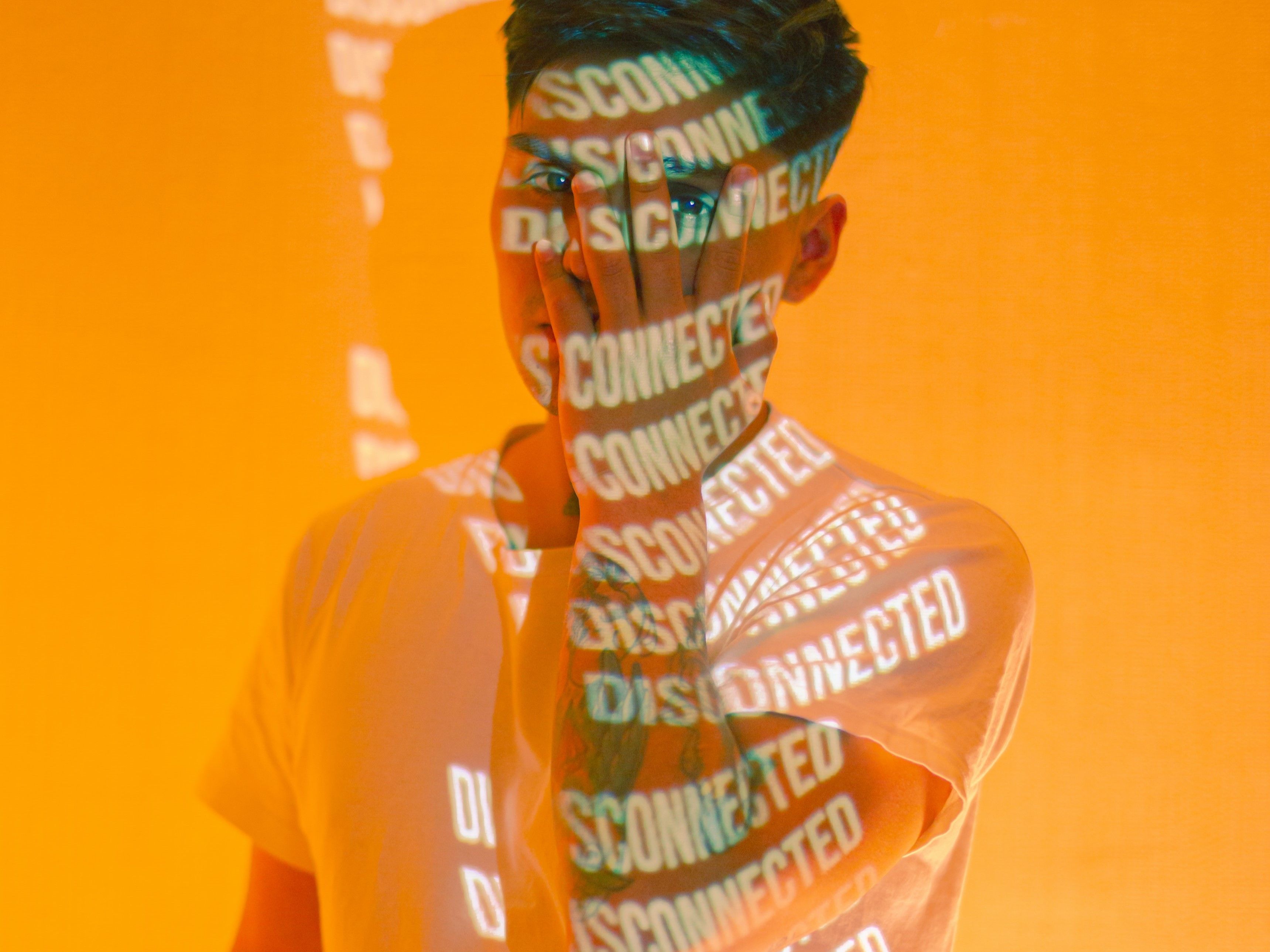
Disconnecting from the chaos of society isn’t necessarily a bad thing. But, how much disconnection is healthy?
Apart from connecting with friends and family, social media also connects us with the world. For many of us, it’s a source of news, updates, events, trends, and cultural phenomena. If you’re content with letting all of that go, that’s your prerogative. But this limited awareness might not be as beneficial as you’d think, especially if you’re, say, a business owner.
Given how dependent socialization and communication have become on social media, giving it up could result in a bit of social alienation. It might be worth ensuring your real-life connections are reliable before cutting off the digital ones.
Key Takeaways
- Consider deactivating your social media accounts first to see if it brings any positive changes to your life before permanently deleting them.
- If deactivation feels too drastic, try deleting the app instead to achieve a similar effect while keeping your account intact.
- Reflect on why you want to delete your accounts - if it’s due to mental health or time management issues, consider establishing healthier habits and setting boundaries instead.
Are You Ready to Delete Your Social Media Accounts?
An unhealthy relationship with social media can harm your mental health. As such, deleting your accounts is something worth considering.
It might seem like your problems will magically disappear after removing your online presence. However, that is far from the case; you need to consider the consequences of deleting your accounts before doing so.
Even if you’re planning on starting afresh with new social media profiles, these points will still help you through the process.
Also read:
- [New] In 2024, Guide to Silent Screen Time View Unseen Stories on Devices
- [Updated] 2024 Approved Stand Out with Style IOS and Android's Best Apps for Adding Stickers
- 4K Visual Excellence Selecting Between Screen Types
- 5 Ways to Restart Vivo Y100i Power 5G Without Power Button | Dr.fone
- ASUS ROCK'S AMRY ZEN Powered Compact PC, DeskMini X600 Series: International Release Date - May 24
- December: The Final Month for Insta Threads
- Decoding Online Deceit: Dispelling 10 Facebook Falsehoods
- Deconstructing Power Dynamics: 7 Core Insights From Social Media Papers
- Delayed Dictum: Social Media Court Hesitates
- Demystifying How PhotoDNA Identifies Counterfeits
- Digital Decorum or Discretion? Managing Late Family Members on FB
- Dissecting Data: The Statistical Impact of Hashtags in Facebook Interactions
- Dividing Lines in Digital Districts with Facebook Update
- Download HP Network Drivers Compatible with Windows 10, 7 & 8
- Effective Techniques to Unlock Fb Accounts in Emergency
- Eliminate BSOD Issues with Effective Troubleshooting Tips
- Exploring the Pros and Cons of the Costly Samsung UN6^5NU8000FXZA Smart Television
- How to Unlock Realme 11 Pro+ Phone without PIN
- Information on Prior Interactions or Escalations Related to This Case, if Applicable.
- Title: Pre-Deletion Self-Assessment: Are You Ready for an Unplugged Life?
- Author: Michael
- Created at : 2025-03-02 16:04:11
- Updated at : 2025-03-04 19:36:58
- Link: https://facebook.techidaily.com/pre-deletion-self-assessment-are-you-ready-for-an-unplugged-life/
- License: This work is licensed under CC BY-NC-SA 4.0.
